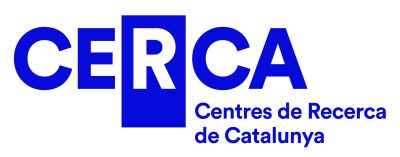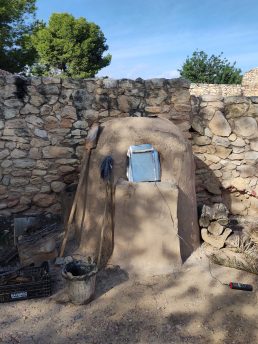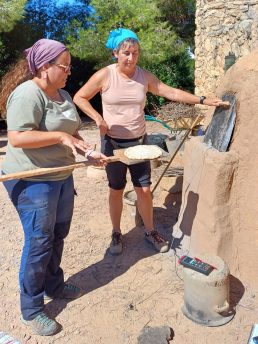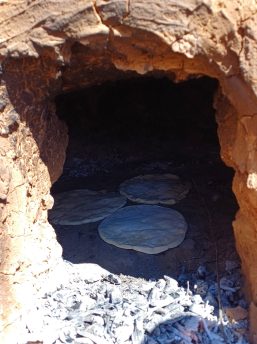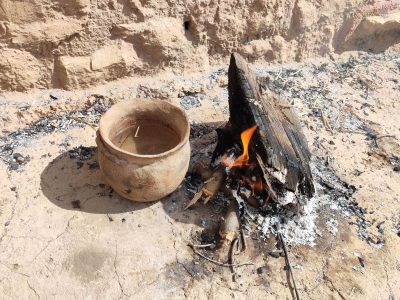
The TransComb experimental archaeology project continues at the Iberian Citadel of Calafell.
This project, led by the Protohistory team of the MIRMED research group and headed by M. Carme Belarte (ICREA-ICAC), focuses on studying culinary practices of the Iberian culture through the recreation of Protohistoric cooking techniques, with a particular emphasis on the use of hearths and ovens from the period.
In this context, one of the recent challenges was to replicate the bread-baking process in an Iberian oven. To achieve this, the team used a model based on Amazigh ovens from the eastern Rif, as archaeological evidence suggests Iberian ovens may have shared similar characteristics in shape and materials.
Using one of the experimental ovens at the Citadel, adapted to meet the project’s needs, the team recreated the process of lighting the oven and baking bread, emulating ancestral techniques.
The process began with lighting the oven using dry plant-based fuel, mainly branches and twigs, which burned quickly. Once the fire was reduced to embers, the sediments were removed to clean the oven. Using the residual heat within the now-empty chamber, the bread was placed inside to bake.
Belarte carried out the experiment alongside team members Marta Mateu, Joan Canela y Maria Anguera, with the support of the Iberian Citadel of Calafell.
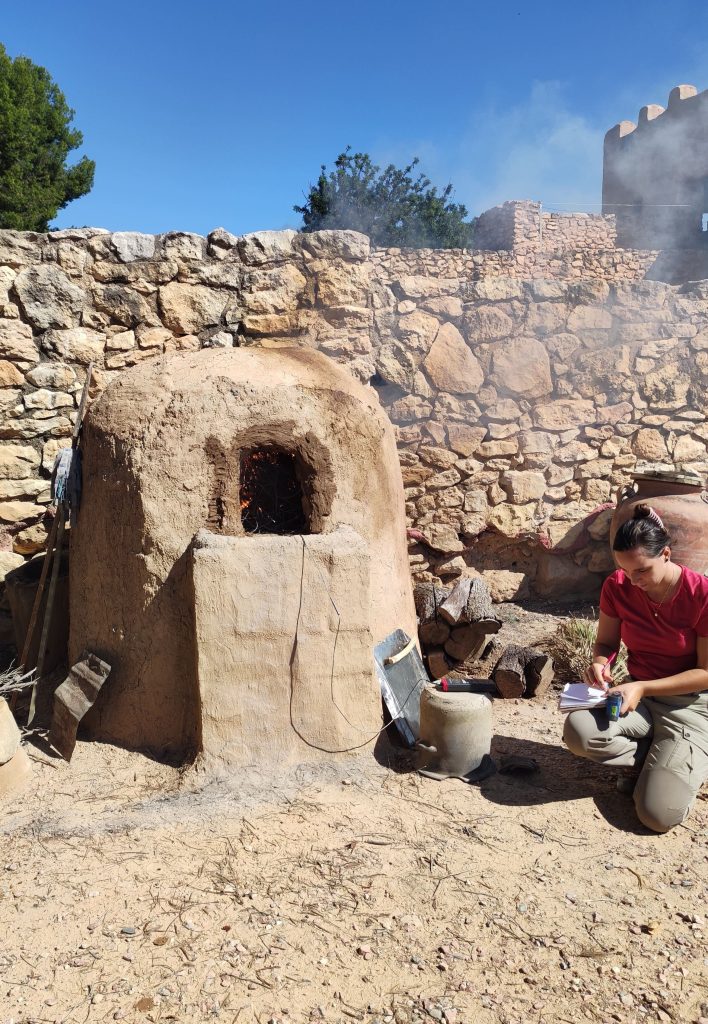
New findings: hearths and ovens in experimental archaeology
The TransComb project is not limited to the study of ovens. In recent phases, replicas of protohistoric hearths have been constructed to investigate the effects of combustion and the organic residues generated during the use of these structures.
These experimental activities not only bring us closer to the culinary practices of the time but also provide valuable data for future archaeological interpretations.
The goal of these tests is to gather evidence to identify the types of fuel used in the Iberian period (wood, straw, dung, etc.) and understand how they affected sediments over time.
The inclusion of oven studies in the project offers new perspectives to better understand the functioning of these domestic structures and their relationship with the daily lives of the Iberians.
An inter-institutional project
The TransComb project, funded by the Spanish Ministry of Science and Innovation (State Research Agency, R&D Projects PID2019-104661GB-I00), is led by ICREA Professor M. Carme Belarte, a researcher at the Catalan Institute of Classical Archaeology (ICAC). It involves a team of around twenty researchers from various institutions, including the University of Barcelona, the University of Valencia, the CNRS, and Calafell City Council.
The research project Estudio transdisciplinar y experimental de estructuras de combustión en el Mediterráneo occidental durante la protohistoria (1er milenio a.C.) aims to analyse combustion structures from the Iron Age in the western Mediterranean. Its primary objective is to obtain data on the efficiency and functioning of these structures, the activities for which they were built, the fuels used, and the management of natural resources.
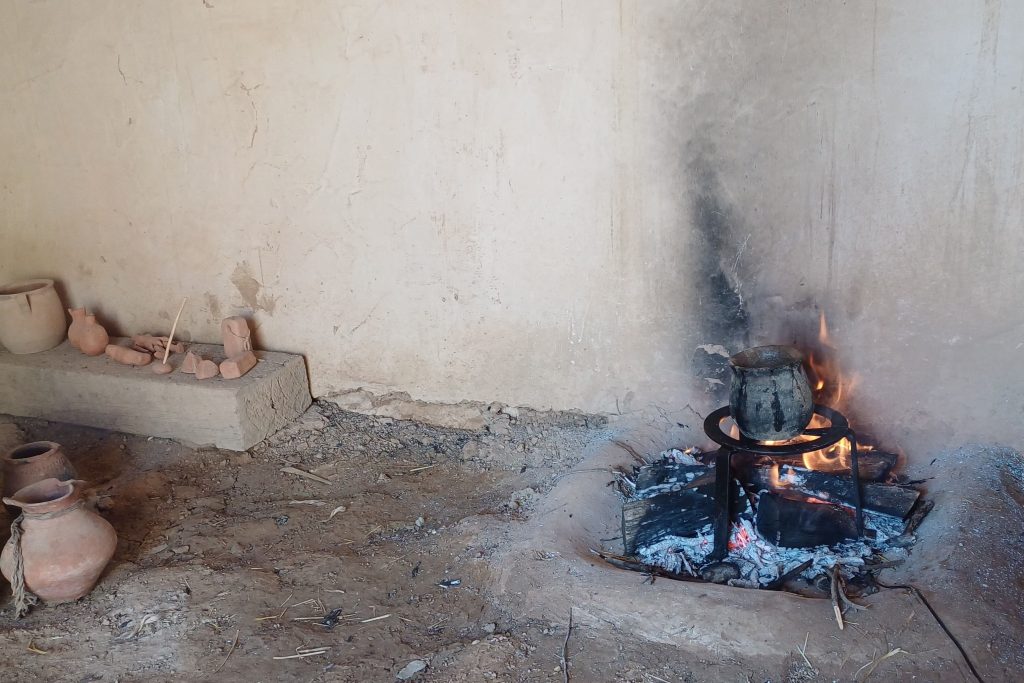
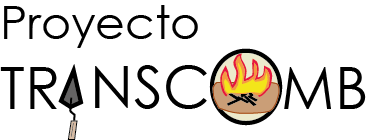
Project funded by Spanish Ministry of Science and Innovation, and the European Union

About the Catalan Institute of Classical Archaeology (ICAC)
The Catalan Institute of Classical Archaeology (ICAC-CERCA) is a CERCA center established as a consortium in 2003 by the Government of Catalonia and the Rovira i Virgili University. It is a Catalan institution with an international scope, at the forefront of research and conservation of archaeological heritage. Its headquarters are in Tarragona, a city recognized as a UNESCO World Heritage Site in 2000. Its researchers work to understand the past, through the study of archaeological remains, and promote the preservation of the historical legacy. We are CERCA!
For more information, visit www.icac.cat.
